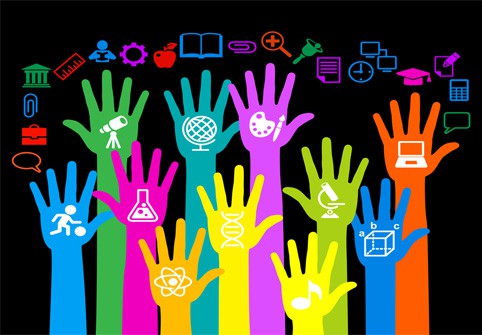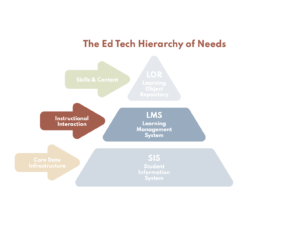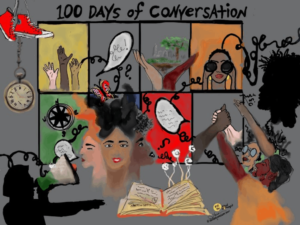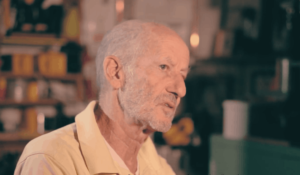10 Signs From NGLC Winners

Next Generation Learning Challenges award applications for “new, personalized, blended, mastery-based school capable of generating dramatically higher outcomes for students.”
Yesterday NGLC announces 8 winners of $450,000 pre-opening grants and 30 winners of $100,000 planning grants. Proposals from the 38 grantees suggest 10 signs of where the blended universe is headed.
1. Districts are blending. This round had more and better district submissions. Danville Kentucky (a recognized reformer) is redesigning it middle and high school. San Diego is supporting the development of a charter high school in the new public library.
Philadelphia is extending its history of working with partners. B21, incubated by NewSchools, proposed an academic model organized “pathways, studios, and modules that allow learners to choose instructional approaches and the pace that suit their learning styles and needs.” The model blends online and small group learning, project-based and real world learning. Philly is also working with Workshop School, a problem-based approach.
2. Personalization strategies. Florida Virtual School is developing “a rich, robust content management system with a student profile system where standards-aligned learning objects are delivered to students as and how they need them.”
A Brooklyn network and a new Oakland charter will utilize game-based and adaptive learning.
3. Breakthrough models. A Bay Area district is developing Idea High School with a focus on design thinking and problem-solving. Makerspace, outside of Cleveland, will “empower students to identify, articulate, and design solutions to real-world problems.” LAUSD will create a school focused on entrepreneurship. NYC iZone will incubate schools with community partnerships and developers. My favorite: a ‘no excuses’ blended Montessori in Austin.
4. Individual progress models. Out of The Box Learning Studio proposes a student-directed, self-paced media arts-based learning cycles. The Internationals network will create a new model with flexible credit-earning opportunities in Queens.
Virtual Learning Academy Charter School, a statewide online charter school in New Hampshire is “redefining ‘school’ to mean wherever learning occurs, whether in a classroom, online, or in the community through VLACS Aspire, a 100% self-paced competency-based approach.”
5. New staffing models. World Class Schools is inspired by the “extended reach” staffing models outlined in Opportunity Culture from Public Impact. A Bay Area school focused on coding and PBL will feature differentiated and team-oriented staffing with master and associate teachers working together. Ingenuity Prep will develop a K-12 school in DC with a four-tiered staffing approach (from resident to master teacher) and small-group blended learning instruction. Center for Teaching Quality will launch a teacher-led school in Tacoma and will cultivate teacher leadership.
6. Student centered models. A small district of West Allis- West Milwaukee is building student-centered environments with competency-based progress and strong family and community partnerships. The New School for Men in Cleveland plans “an unprecedented level of social and emotional support.” New Tech will open an updated model in Florida.
7. Habits of success. Valor Collegiate Academies intends to be leader in collecting non-cognitive data and using it to inform growth. Thrive Public Schools, a new CMO, will honor the needs of each student’s academic and social-emotional growth through the thoughtful use of technology and the care of adults.
8. Turnaround models. KIPP Houston developed a turnaround model that combines online learning and strong teachers to provide effective Response to Intervention (RtI) learning opportunities to the at-risk students served by the school. Michigan’s EAA will extend their innovative K-8 model into high school.
9. Rural models. Piedmont City Schools in Alabama will develop and present a sustainable model that works in small town and rural America. Jefferson County, a small district southeast of Portland is redesigning a K-8 school on the Warm Springs Indian Reservation.
10. Experienced operators. With all the talk about “extended reach” for teachers, we’re also seeing experienced operators taking on new challenges. KIPP, New Tech, Internationals, EAA, and Educate Texas all won grants to extend their impact. A couple well known schools–Boston Day and Night, and Metro in Columbus–won grants. Todd Yarch taking his show to Memphis. Nicole Tempel Assisi is launching another LA CMO.
NGLC helps to sponsor exemplars that show the rest of us the path forward. The NGLC program is so important I think Every State Should Run A Next-Gen Learning Challenge.
For more, check out the three part review of the 20 wave 3 grantees:
To read more go directly to Next Generation Blog
Disclosure: FLVS is a Getting Smart Advocacy Partner







0 Comments
Leave a Comment
Your email address will not be published. All fields are required.